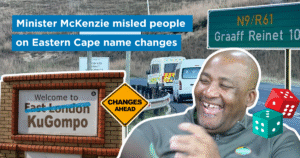Please find attached a soundbite by Kevin Mileham MP.
The DA has today written to the Speaker of the National Assembly, Thoko Didiza, requesting that Parliament holds a debate of national importance on the rapidly rising cost of electricity which is becoming increasingly unaffordable for many South African households.
The decision by NERSA to grant Eskom’s application to retrospectively recover R8 billion through its Regulatory Clearing Account for the 2021/2022 financial year, which will translate to a 4% tariff increase in 2025 – and Eskom’s application for a further 36,15% tariff increase in 2025, will effectively price many households out of the electricity market and increase energy poverty to levels not seen since the dawn of democracy.
According to a leaked document showing Eskom’s tariff increase application to NERSA for the next 3 financial years, the power utility is seeking above-inflation and double-digit increases that will make electricity simply unaffordable:
- 2025/2026: 36.15%
- 2026/2027: 11.81%
- 2027/2028: 9.1%
According to the South Africa Reserve Bank, between 2007 and 2022, the average Eskom tariff increased by 450% while inflation increased by only 129% over the same period. What this means is that electricity tariffs have increased four-fold (or quadrupled) in real money terms in 14 years.
Electricity tariffs have reached crisis levels and there is now a real risk that South African households could become trapped in a permanent high cost of living environment due to sky high electricity prices.
Uninterrupted power supply has left many South Africans with a lot less to cheer about as loadshedding relief has quickly turned into a financial nightmare. The double digit tariff increases that have been granted to Eskom over the past few years forced many to choose between putting food on the table or keeping the lights on. No one should be forced to make this choice, especially considering that many food poverty levels at household level are still high due to high prices.
The recent announcement by the Ministry of Energy and Electricity to review the electricity pricing model is welcome but the depth of the electricity price crisis requires that the government moves with urgency.
The Eskom monopoly has become inefficient, and the cost of that inefficiency is now being passed on to consumers. It does not help that the current electricity pricing policy is more biased towards setting tariffs that reward Eskom inefficiency while failing to balance this with consumer affordability.




